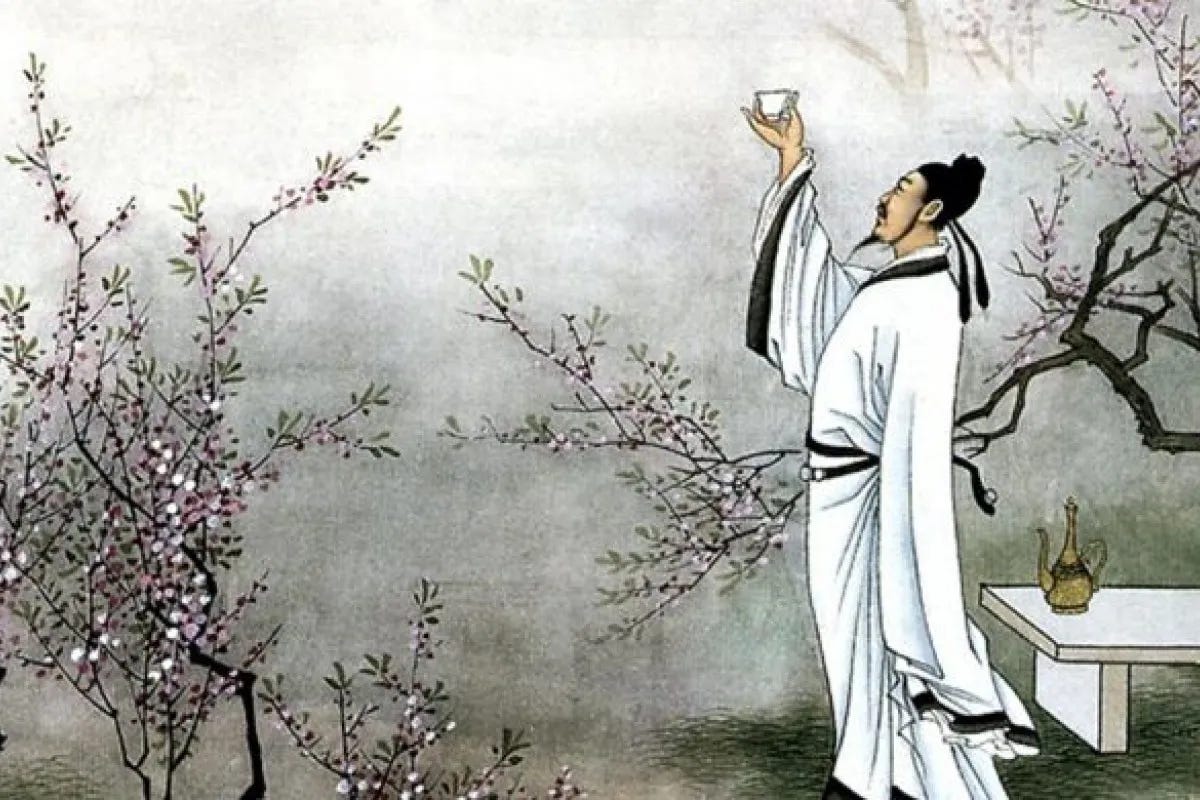
Today’s poem is the work of an eighth-century poet whose reputation didn’t peak until the twentieth century. Li Po’s “The Solitude of Night” (translated here by Shigeyoshi Obata) resembles Japanese haiku in its atmospheric brevity and is heavy with the kind of common-to-man melancholy the modernists would feel so deeply more than a millennium later.
A Chinese poet of the Tang Dynasty, Li Po (also known as Li Bai, Li Pai, Li T’ai-po, and Li T’ai-pai) was probably born in central Asia and grew up in Sichuan Province. He left home in 725 to wander through the Yangtze River Valley and write poetry. In 742 he was appointed to the Hanlin Academy by Emperor Xuanzong, though he was eventually expelled from court. He then served the Prince of Yun, who led a revolt after the An Lushan Rebellion of 755. Li Bai was arrested for treason; after he was pardoned, he again wandered the Yangtze Valley. He was married four times and was friends with the poet Du Fu.
-bio via Poetry Foundation
Get full access to The Daily Poem Podcast at dailypoempod.substack.com/subscribe
More Episodes
 2024-06-25
2024-06-25
 2024-06-24
2024-06-24
 2024-06-21
2024-06-21
 2024-06-20
2024-06-20
 2024-06-20
2024-06-20
 2024-06-17
2024-06-17
 2024-06-12
2024-06-12
 2024-06-11
2024-06-11
 2024-06-10
2024-06-10
 2024-05-31
2024-05-31
 2024-05-30
2024-05-30
 2024-05-29
2024-05-29
Create your
podcast in
minutes
- Full-featured podcast site
- Unlimited storage and bandwidth
- Comprehensive podcast stats
- Distribute to Apple Podcasts, Spotify, and more
- Make money with your podcast
It is Free
- Privacy Policy
- Cookie Policy
- Terms of Use
- Consent Preferences
- Copyright © 2015-2024 Podbean.com




